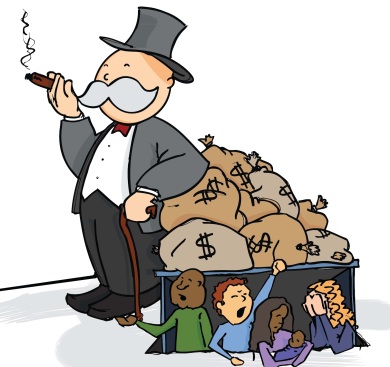
RELATED ARTICLE
https://flipboard.com/magazines/#weeks-highlights
The article I chose is titled, “Can Europe go its own way on data privacy?” This article is found on the Internet, but it is also an App, called FlipBoard on my phone that I use as a news source, and where I platform I used to access this article. I felt FlipBoard really embodied a combination of Google and Bing’s page rank in the sense that it combines both informative news that doesn’t mislead to unsatisfying information, but it also give you the option of choosing that news you want to read about. This is a very balanced and efficient way to deliver news in my opinion because it doesn’t give you a stagnant news article to stare at and decide to read or not, but it flips through articles in different categories that you choose to include in your Flipbook (like New, Entertainment, Sports, etc.).
 1) I find my dominant method for retrieving information is a combination of many of the theorists in Chapter 3. Miller,Maslow and other theorists like them, who suggest information is based moreon a natural hunger for knowledge, which is closest to my dominant method for retrieving information. I say this because I have always been a curious person who wants to know about things. I think this is something innate that helps us understand the world around us and as is mentioned in the reading, which said […] the need for information could be interpreted as an inherent definition of life, or, more specifically, of being human.”
1) I find my dominant method for retrieving information is a combination of many of the theorists in Chapter 3. Miller,Maslow and other theorists like them, who suggest information is based moreon a natural hunger for knowledge, which is closest to my dominant method for retrieving information. I say this because I have always been a curious person who wants to know about things. I think this is something innate that helps us understand the world around us and as is mentioned in the reading, which said […] the need for information could be interpreted as an inherent definition of life, or, more specifically, of being human.”
What I found even more interesting is that my method for retrieving is also on the opposite end of the spectrum of that I mentioned previously. I find information in entertainment, but not because the kind of information that informs me of anything that I need to know in life, but “a little bit of entertainment helps the information go down.” I found this to be an interesting point brought up in the reading because I completely agree that a little relief from hard news will help digest readers digest the content within the news articles.
Finally, the last point I would like to mention about my dominant method for retrieving information is one the coincides with Donald Case’s “lessons” of information as well as what I have already said about information. My favorite publications to read are celebrity magazines, which falls under “entertainment as information” in the reading. I feel that reading about gossip and celebrity lives is like understanding another world, their lifestyle – and as I said I believe having an inborn curiosity to understand our world (even if it is not ours) is something that we naturally wish to explore. So, in a way I see my interest entertainment magazines is a small part of why I enjoy them so much, and like Case said we may not always be seeking for important information because information is not always about making sense of things in “information may include every intrinsic and extrinsic impulse, impressions, opinions, wishes and dreams, activities, and so on.”
 2) The “content farm” I chose to use was Bing.com, which is a search engine that immediately came to mind since it has been trying to compete with Google since Microsoft introduced it. In the spirit of the Winter Olympics I searched “Silje Norendal,” a Norwegian snowboarder I saw compete during the slope style event.
2) The “content farm” I chose to use was Bing.com, which is a search engine that immediately came to mind since it has been trying to compete with Google since Microsoft introduced it. In the spirit of the Winter Olympics I searched “Silje Norendal,” a Norwegian snowboarder I saw compete during the slope style event.
When I searched her name online to research her age and snowboarding background, the results were her satisfying since it presented her stats from the Winter Olympics, but the first actual link was titled, “The 20 Hottest Female Professional Snowboarders” (from complex.com) then her Wikipedia page. This information differs from that I saw on Wikipedia because it proved the point Miller made in his article that search engines edit their searches to coincide with not what is informative to the public, but what is popular.
If anything Wikipedia (which was once criticized for its unreliability as an information source) was ironically in this case the more consistent site that gave me exactly what I wanted to know. Moreover, Wikipedia has become a medium that seemingly sticks closer to the integrity of traditional print in the manner that it doesn’t embed keywords that brings you to more of its popular articles, but rather it provides links to information relevant to understand the content within the site.
I wanted to make one more comparison with Google since he article mentions that Google penalizes or blocks sites for black hat S.E.O., or sites that “[include] hidden text or loading up pages with irrelevant keywords.” I found that they were true to their word and the results for “Silje Nordendal” came up with her states in the Winter Olympics as it did in the Bing search. Wikipedia came up to be the 4th search result and after her search results of the Sochi games that she participated in, the results stated to parallel those of Bing and articles about her sex appeal as a woman snowboarder.
Speaking of traditional print, as Miller says in his article, this new style of obtaining readership has news outlets like these in a panic to compete as they and other news sources like “magazines, blogs and online-only news sites […] are making it more of a priority than ever and adopting new techniques, like trying to maximize pass-alongs on social networks.”
Content farms are using social media as a source in determining what is the bet information to include at the top of the their searches. As the article points out, “you’re finding that today’s audience is much more interested in the filter of their colleagues and friends who they trust than an algorithm produced by someone else.” So, as a way of surviving in an ocean of information based on what people want to know versus what they need to know, news outlets like New York Times, Wall Street Journal, Washington Post are relying on their reputation and name to be passed along by their loyal readers on social networking sites.

3) When it came to using Bing as a search engine, Google takes what want to search and assumes we know that we want to look up before we can even finish typing our search. Even so, a simple search like “Sijle Nordendal” doesn’t mean that the searcher is looking to see the other “20 Hottest Snowboarders” and Google doesn’t bring that up as the first link on their search page. As Gleick says, “[e]veryone knew was that the way to make money was to attract and retain users,” but Google doesn’t rely on the Page Rank that other search engines believes will give them an edge. Though Google bombards us with ads based on our search histories and frequent searches, their information is still relevant and more pertinent than many sites.their search results really resonated with theGleick reading. As I mentioned before, the Page Rank on Bing was easily based on “a probability distribution, and the calculation is recursive, each page’s rank depending on the ranks of pages that depend…and so on” necessarily based on relevant information with informative content.
Since searching Silje Norendal on Bing and clicking on the first link that it provided me with, the premium-sponsor for this Complex is their own company, Compex Media who aims to market to young males, which explains the content of their page. Their page has no advertisements, but instead their advertisements can be found in their magazines. This makes me question why a company like Microsoft’s Bing, would not follow the model of Page Rank that has made Google so successful.
In my opinion, I think that Bing is trying to go in a new direction and offer an alternative to strictly information – one that allows people to follow sites that appeal to specific interests since complex.com can be better be categorized as a blog. Since blogs are becoming such a popular source of “infotainment” users might see Complex and even Bing as a better-suited search engine for what some are looking for. Bing is trying to be personalized, while still trying to be credible to information seeking users, but when there is already a company dominating that idea (yes, Google) then you have to come up with something new, but I think the touch of personalization in its search results is far from having an edge over Google.
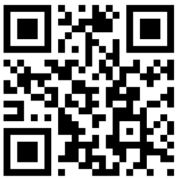
 I also just found this meme to just be funny every time the gif replayed to show the hilarious face over and over again. So with this idea of connection through memes that express s community culture, I think one of my favorite memes is the one of “The Most Interesting Man in the World.” This meme uses the image of the Dos Equis Beer spokes man known as “The Most Interesting Man in the World,” and satirically alters his famous line “I don’t always drink beer, but when I do I prefer Dos Equis.” Memes spread through Rutgers with memes like, “I don’t always study for orgo, but when I do, it makes no difference.” These were some of my first introductions to memes and were always able to get a laugh out of me.
I also just found this meme to just be funny every time the gif replayed to show the hilarious face over and over again. So with this idea of connection through memes that express s community culture, I think one of my favorite memes is the one of “The Most Interesting Man in the World.” This meme uses the image of the Dos Equis Beer spokes man known as “The Most Interesting Man in the World,” and satirically alters his famous line “I don’t always drink beer, but when I do I prefer Dos Equis.” Memes spread through Rutgers with memes like, “I don’t always study for orgo, but when I do, it makes no difference.” These were some of my first introductions to memes and were always able to get a laugh out of me. 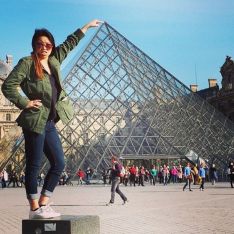

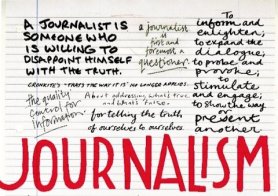 1. According to the group of codes of ethics discussed by the Society of Professional Journalists’ Code of Ethics, the tenet that “journalism should be honest, fair, and courageous in gathering, reporting and interpreting information,” is upheld the most because it defines the objective of the field of journalism itself. This is exemplified in any traditional news source in which news is delivered in an objective and neutral manner.
1. According to the group of codes of ethics discussed by the Society of Professional Journalists’ Code of Ethics, the tenet that “journalism should be honest, fair, and courageous in gathering, reporting and interpreting information,” is upheld the most because it defines the objective of the field of journalism itself. This is exemplified in any traditional news source in which news is delivered in an objective and neutral manner.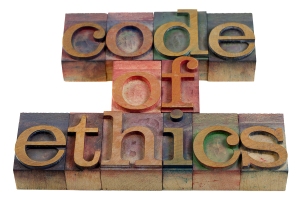

 1) I find my dominant method for retrieving information is a combination of many of the theorists in Chapter 3. Miller,Maslow and other theorists like them, who suggest information is based moreon a natural hunger for knowledge, which is closest to my dominant method for retrieving information. I say this because I have always been a curious person who wants to know about things. I think this is something innate that helps us understand the world around us and as is mentioned in the reading, which said […] the need for information could be interpreted as an inherent definition of life, or, more specifically, of being human.”
1) I find my dominant method for retrieving information is a combination of many of the theorists in Chapter 3. Miller,Maslow and other theorists like them, who suggest information is based moreon a natural hunger for knowledge, which is closest to my dominant method for retrieving information. I say this because I have always been a curious person who wants to know about things. I think this is something innate that helps us understand the world around us and as is mentioned in the reading, which said […] the need for information could be interpreted as an inherent definition of life, or, more specifically, of being human.” 2) The “content farm” I chose to use was Bing.com, which is a search engine that immediately came to mind since it has been trying to compete with Google since Microsoft introduced it. In the spirit of the Winter Olympics I searched “Silje Norendal,” a Norwegian snowboarder I saw compete during the slope style event.
2) The “content farm” I chose to use was Bing.com, which is a search engine that immediately came to mind since it has been trying to compete with Google since Microsoft introduced it. In the spirit of the Winter Olympics I searched “Silje Norendal,” a Norwegian snowboarder I saw compete during the slope style event.
